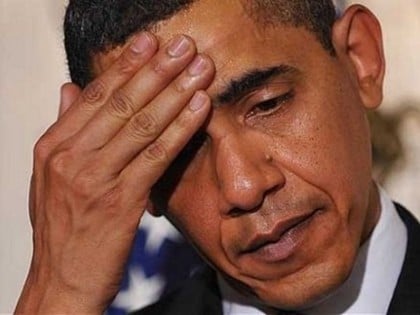 The management flaws now coming to light in the implementation of the president’s signature domestic achievement have long been evident in the foreign policy realm. As I argue in a new essay on Fair Observer’s website, the White House’s policymaking machinery is overly insular, centralized and politicized.
The management flaws now coming to light in the implementation of the president’s signature domestic achievement have long been evident in the foreign policy realm. As I argue in a new essay on Fair Observer’s website, the White House’s policymaking machinery is overly insular, centralized and politicized.
Dana Milbank, the Washington Post columnist who is generally supportive of Mr. Obama, had a hard-hitting piece last week that argued:
Like his predecessor, [Obama] has rewarded loyalty and surrounded himself with like-minded advisers disinclined to dissent. This, combined with a Bush-like fetish for secrecy, has left the president in a bubble, struggling to find support in Congress or among the public.
This is the same message that former administration staffers and friendly observers have been making for a while regarding the administration’s foreign policy initiatives, though it is striking how the White House continues to pay no heed. A current case in point is the fundamental review of U.S. policy in the Middle East conducted this past summer. The New York Times the other week quoted Susan E. Rice, the president’s national security advisor, as saying that the review was done “in a very critical and no-holds-barred way.” Disconcertedly, however, it also notes that the exercise was very much an inside job, done by “a tight group that included no outside of the White House.” One wonders whether Ms. Rice noticed the disconnect.
Read my entire essay here.
It’s worth noting that one common element in the Obamacare fiasco and the administration’s national security dysfunctions is the role of Denis R. McDonough, a key aide in the 2008 presidential campaign who then went on to serve as deputy national security advisor before being tapped earlier this year as the White House chief of staff. Rosa Brooks, who served in the Pentagon’s policy shop during the first term, charged a while back that McDonough was among those shutting out dissenting voices during national security planning, as well as so chaotically managing the interagency policy process that, as Brooks puts it, “shallow discussions and poor decisions” were all but inevitable.
In an earlier post, I observed that “Chief of staff selections say much about a president’s management style and policy predilections. On both counts, McDonough’s promotion may signal trouble ahead as the second term begins.”
If he hopes to salvage his remaining years in office, Mr. Obama needs to quickly fix his broken White House. Paying attention to outsiders with alternative views would be a very good start.
This commentary is cross-posted on Monsters Abroad. I invite you to connect with me via Facebook and Twitter.